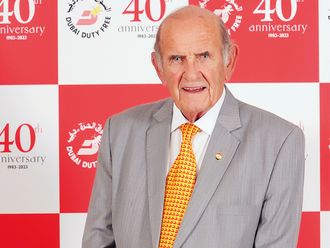By Andrew Staples, Chief Business Reporter
DUBAI: Infrastructure projects such as railway building can stimulate Middle Eastern economies, Aecom’s regional head of rail told the Middle East Rail Conference on Tuesday.
Paul Di Rosa made an impassioned plea for both governments and companies to consider funding projects through public-private partnerships (PPPs) in order to continue schemes that had become global benchmarks for infrastructure investment.
“We’ve seen a noticeable downturn in [infrastructure] investments in the region as a whole,” he said. “Either funds are no longer available or they’ve been diverted to more priority sectors.
“The region had seen a surge in investment for this much-needed rail infrastructure over recent years, and the industry reacted positively. It mobilised the activities, the resources both within the region and globally to support these challenging and complex programmes.”
But he said the reduction in public sector spending due to low oil prices offered private firms a great opportunity to get involved through PPPs.
“We are going to need public and private sector champions to help promote and change this procurement system,” he told delegates. “The statutory environments in some parts of the Middle East still need to be developed. It started here — Dubai and the UAE are leading the way.
“We don’t need to reinvent the wheel, there are plenty of proven successful examples around, and the industry has even learnt from the less-successful examples.”
Adopting the PPP model could help maintain the momentum of infrastructure projects through the period of low oil prices, he suggested, helping fulfil commitments made when oil prices were high and stimulating regional economies.
“I’m sure there are private entities within this conference room here, like ourselves, that need to engage with public entities and continue to drive these programmes forward. This is our opportunity.”












